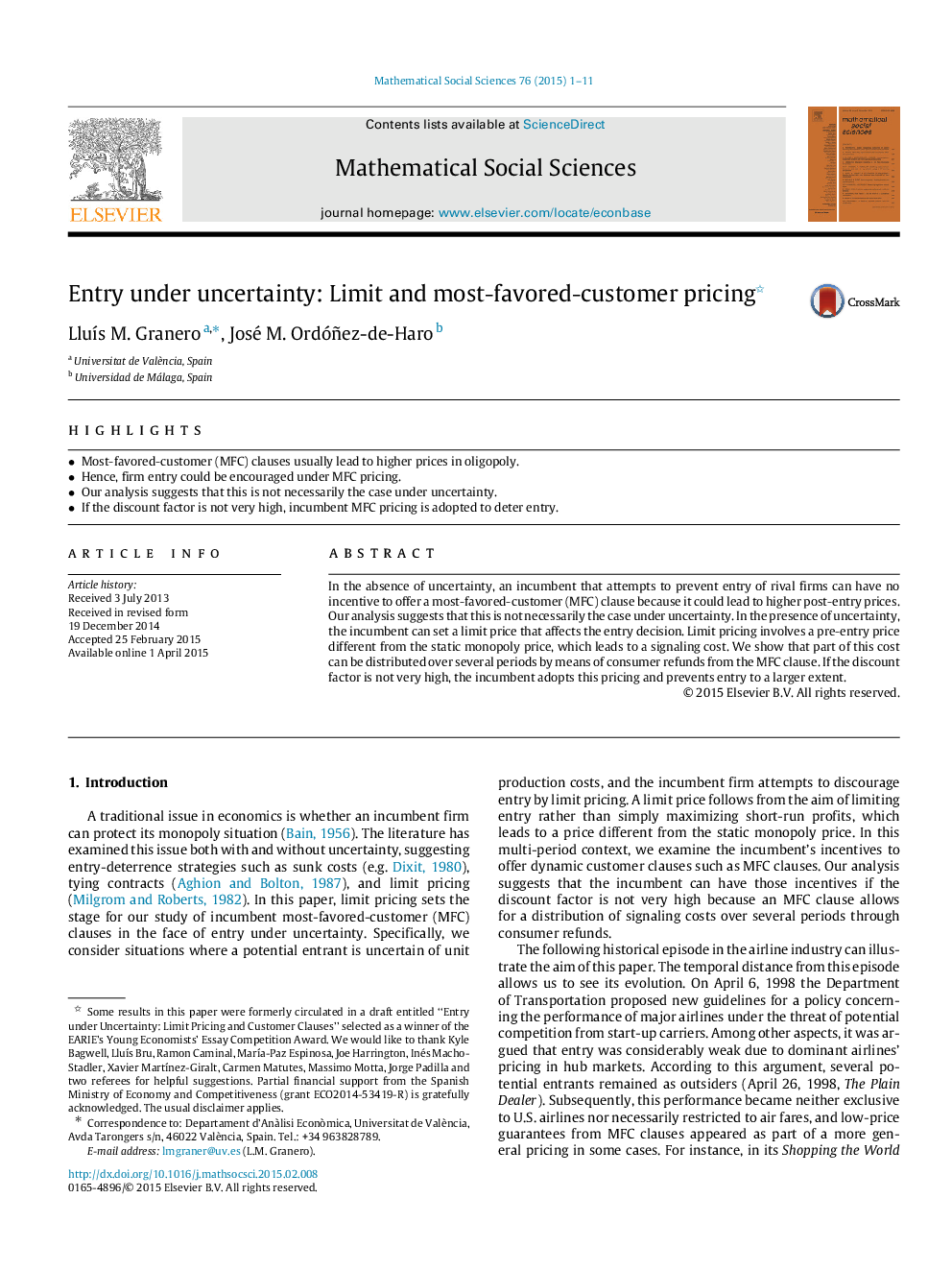| Article ID | Journal | Published Year | Pages | File Type |
|---|---|---|---|---|
| 972835 | Mathematical Social Sciences | 2015 | 11 Pages |
•Most-favored-customer (MFC) clauses usually lead to higher prices in oligopoly.•Hence, firm entry could be encouraged under MFC pricing.•Our analysis suggests that this is not necessarily the case under uncertainty.•If the discount factor is not very high, incumbent MFC pricing is adopted to deter entry.
In the absence of uncertainty, an incumbent that attempts to prevent entry of rival firms can have no incentive to offer a most-favored-customer (MFC) clause because it could lead to higher post-entry prices. Our analysis suggests that this is not necessarily the case under uncertainty. In the presence of uncertainty, the incumbent can set a limit price that affects the entry decision. Limit pricing involves a pre-entry price different from the static monopoly price, which leads to a signaling cost. We show that part of this cost can be distributed over several periods by means of consumer refunds from the MFC clause. If the discount factor is not very high, the incumbent adopts this pricing and prevents entry to a larger extent.
